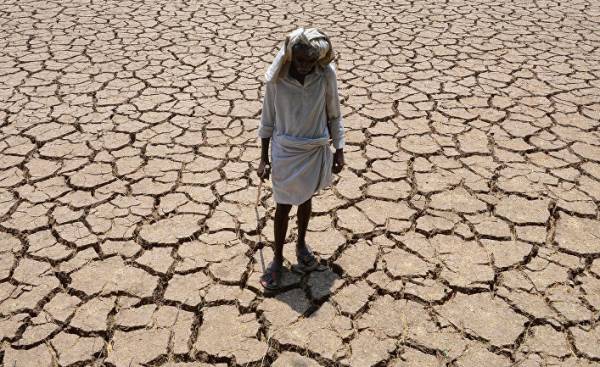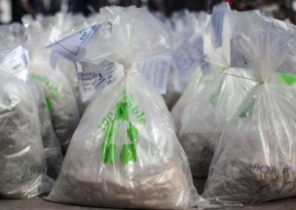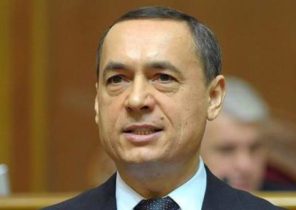
Abidjan — Water is essential for life, but in many parts of the world, its reserves are extremely small. And now, due to the effects of climate change, Africa is experiencing the most severe drought since 1945, especially in southern Sudan, Somalia, Ethiopia and Northern Nigeria.
These regions are experiencing difficulties and need support of the international community. We need to create a sustainable system that will guarantee access to drinking water for the entire population, as well as improve the provision of water and sanitation conditions in rapidly growing cities of Africa.
We must begin with the empowerment of Africa in the use of wastewater. Thanks to the investment and proper management of wastewater can be a sustainable source of wealth for many Africans, but will also benefit human health, agricultural productivity and environmental sustainability.
Over the past six years, the African development Bank (ADB) invested 3.3 billion dollars in projects to improve access to water and sanitation, with about $ 2.2 billion of this amount was directed to projects of urban systems serving at least 17 million people.
ADB promotes “Integrated model of urban water supply management” (abbreviated as IUWM), which, in accordance with the sixth sustainable development goal of the UN, gives people the opportunity to receive a stable income from the management of urban liquid and solid waste.
The IUWM projects require significant initial investment and are associated with high capital and operating costs. Only a few African cities collect and purify more than 20% of the sewage through a centralized sewage system. The remaining 80% represent an enormous unused source of potentially valuable liquid and solid waste. With the right investment, planning and perseverance this underrated resource will create jobs and ensure sustainable economic growth.
That is why wastewater management is a Central element in the strategic priorities of the ADB, called the “Top-5”. Our goal is to improve the quality of life of Africans, their health, to achieve gender equality, create jobs, increase resilience of population to climate change. In addition, water will play a key role in achieving the objectives of industrialization and sustainable development of farming.
In Yaounde (Cameroon), ADB has helped to protect about 300 thousand people and their property, reducing the frequency of floods from 15 to just three cases a year. Thanks to the project sanitation cost $ 40 million, ADB has helped to reduce the percentage of urban population suffering from malaria, from 16% to 12%.
In Abidjan (côte d’ivoire) funded by ADB project “Integrated wastewater management in the pool Guru” worth $ 23 million will significantly reduce the frequency of flooding in the basin of the Guru, thereby, improving life for 2.8 million residents.
In Zimbabwe, where in 2008-2009, 4,300 people died during a pandemic of cholera, ADB, together with other donors supported the emergency improvement project of water and sanitation facilities worth 43,6 million dollars. This project allowed to carry out emergency repairs of sewer systems in urban areas, we helped 2.5 million people.
All ADB-supported projects control systems for wastewater rely on the strategy of sustainable development that benefit the economy and local communities while remaining affordable. These projects also assist countries to recycle waste, transforming it into biogas and fertilizer.
© Stefano De Luigi / the Syngenta Photography AwardСтефано de Luigi “Drought in Kenya”, 2009
In addition to project financing from the ADB is the program “African water” (AWF), which helps to mobilize investment in water infrastructure. In February, flooding and strong tropical storm, Dineo destroyed the coast of Mozambique, which has negatively affected the local population. But a few weeks later, in AWF began work on the feasibility study of the project on improving livelihoods and increasing resilience to climate change in Mozambique’s Inhambane province, which was hit by the storm.
In addition, the AWF, in cooperation with the “Global water partnership” (GWP), is engaged in the implementation of IUWM systems in five African cities, including in Kinshasa (Democratic Republic of the Congo) and Marondera (Zimbabwe). By 2030 only one in the Democratic Republic of the Congo IUWM system is expected to help improve water supply and sanitation for 17 million people.
The bill and Melinda gates Foundation also uses the expertise of the ADB providing a grant of $ 18 million to Finance the second phase of ADB’s program to improve sanitary conditions in the cities. This project will help to stimulate business innovation in the field of affordable and sustainable sanitation services in Africa that will directly affect two million city residents and another six million people through related projects.
The problem of wastewater management in Africa are significant and complex. But ADB is firmly committed to open new opportunities that will pay dividends on the African population — improve health and sanitary conditions, the state of the economy and environmental protection.
To improve the quality of life for all Africans requires political commitment, public-private partnerships, active social participation. In the framework of the strategy “Top-5” ADB is working on the combination of these three ingredients.
All participants in the process — in Africa and in the world must redouble their efforts to ensure the availability of clean water for all people and to support African countries affected by drought of historic proportions. It is our moral duty. Because water is life.







